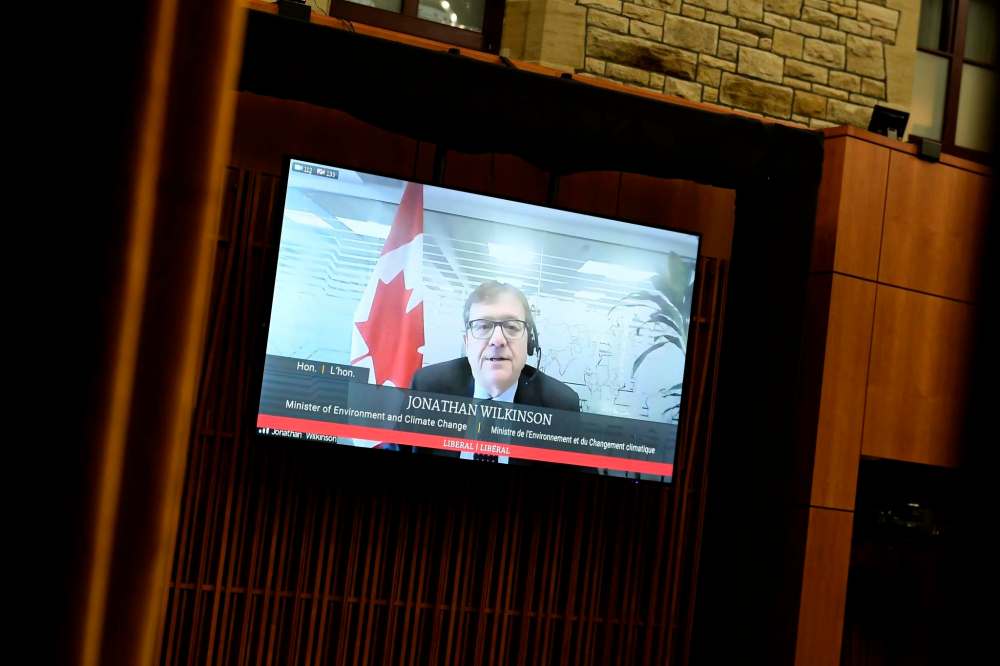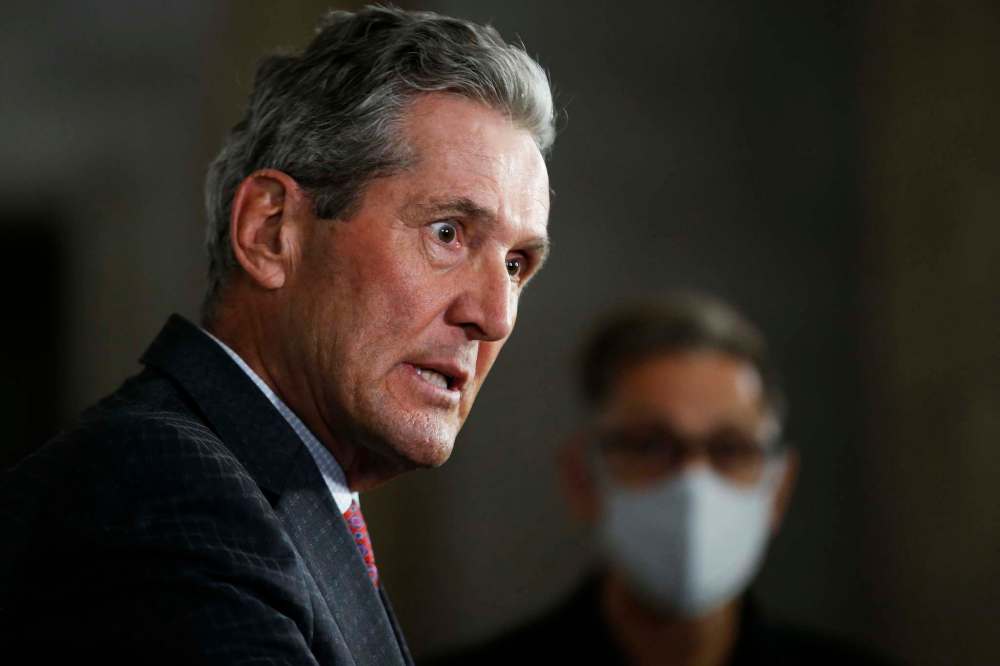Supreme Court ends carbon-tax fight… or? Pallister, Alberta, Saskatchewan premiers vow not to give up after 6-3 decision affirms constitutionality of federal climate-change law
Read this article for free:
or
Already have an account? Log in here »
To continue reading, please subscribe:
Monthly Digital Subscription
$0 for the first 4 weeks*
- Enjoy unlimited reading on winnipegfreepress.com
- Read the E-Edition, our digital replica newspaper
- Access News Break, our award-winning app
- Play interactive puzzles
*No charge for 4 weeks then price increases to the regular rate of $19.00 plus GST every four weeks. Offer available to new and qualified returning subscribers only. Cancel any time.
Monthly Digital Subscription
$4.75/week*
- Enjoy unlimited reading on winnipegfreepress.com
- Read the E-Edition, our digital replica newspaper
- Access News Break, our award-winning app
- Play interactive puzzles
*Billed as $19 plus GST every four weeks. Cancel any time.
To continue reading, please subscribe:
Add Free Press access to your Brandon Sun subscription for only an additional
$1 for the first 4 weeks*
*Your next subscription payment will increase by $1.00 and you will be charged $16.99 plus GST for four weeks. After four weeks, your payment will increase to $23.99 plus GST every four weeks.
Read unlimited articles for free today:
or
Already have an account? Log in here »
Hey there, time traveller!
This article was published 25/03/2021 (1719 days ago), so information in it may no longer be current.
The Supreme Court of Canada has ruled the federal government’s carbon pricing legislation is entirely constitutional but it seems jurisdictional feuding is far from over.
The court’s 6-3 decision was released Thursday.
Ontario, Saskatchewan and Alberta challenged the constitutionality of the Greenhouse Gas Pollution Pricing Act — the 2018 legislation that created a nationwide minimum threshold level for a carbon tax — arguing it overstepped and meddled in the provinces’ ability to develop their natural resources.
Manitoba signed on as an intervener and contributed arguments to the case that was heard in September.
Supreme Court Chief Justice Richard Wagner, writing for the majority, said Ottawa is within its rights to enact such legislation because climate change can be categorized as a national concern, under the “peace, order and good government” clause of Canada’s Constitution.
“There is also a broad consensus among expert international bodies that carbon pricing is a critical measure for the reduction of GHG emissions. This matter is critical to our response to an existential threat to human life in Canada and around the world,” Wagner wrote.
Environment and Climate Change Minister Jonathan Wilkinson applauded the decision, a relief for the Liberals, who had made the carbon tax a core policy platform.
“Canadians rightly expect their governments to build an economy that fights climate change using the most effective tools at our disposal. And now we can get on with the job,” Wilkinson said.
He said he hoped the ruling would bring jurisdictions together “in a renewed spirit of common purpose” to address climate change.
The reaction in some parts of the country suggest that’s unlikely.
Premier Brian Pallister responded by digging in his heels, indicating the province will keep fighting.
Manitoba filed a separate lawsuit in Federal Court in 2019 asserting Ottawa had no right to disregard the province’s carbon tax plan for falling short of its minimum requirements.
“Our proposal involves a flat-like-the-prairie-horizon carbon levy. That’s what we wanted to do,” Pallister said. “We were ready to do it.”

Manitoba’s plan outlined a permanent $25 per tonne carbon tax, but the federal benchmark started at $20 per tonne in 2019 and will rise to $50 by 2022. Pallister’s proposal looks even more inadequate after Ottawa’s December announcement of plans to raise the amount to $170 per tonne by 2030.
“I think we have a better plan. I’m confident it will work better because Manitobans will work better at it because it comes from us,” Pallister said.
The province’s opposition leader suggested the premier is wasting valuable time.
“He can keep fighting the federal government in court, or he can start really fighting climate change on behalf of future generations,” NDP Leader Wab Kinew said.
“We say that he should focus on fighting climate change.”

Alberta Premier Jason Kenney and Saskatchewan’s Scott Moe said they intend to continue their political opposition.
The Supreme Court ruling said Ottawa’s legislation set out a minimum threshold for action by the provinces, but was not prescriptive because it won’t be applied if they comply with the minimum requirements.
“A failure to include one province in the scheme would jeopardize its success in the rest of Canada,” the decision stated.
Ian Mauro, executive director of the Prairie Climate Centre, said he was thrilled to see the Supreme Court cut through partisanship and put climate science at the forefront of its decision.
“The fundamental thing that comes out with respect to the science articulated in the judgment is that climate change is fundamentally a trans-boundary problem. It doesn’t occur in one province or one country. This way in which we have to tackle it across jurisdictions, is in many ways, the fundamental challenge,” Mauro said.
“The fundamental thing that comes out with respect to the science articulated in the judgment is that climate change is fundamentally a trans-boundary problem. It doesn’t occur in one province or one country. This way in which we have to tackle it across jurisdictions, is in many ways, the fundamental challenge.” – Ian Mauro, executive director of the Prairie Climate Centre
The decision also highlighted the importance of carbon pricing for Indigenous communities.
However, Assembly of Manitoba Chiefs Grand Chief Arlen Dumas said the court missed a vital opportunity to weigh in on where First Nations jurisdictional rights fit into the equation. AMC acted as an intervener in this case.
“It would have helped facilitate a conversation about First Nations governance, First Nations rights in conjunction with provincial and federal jurisdictions, and for the Supreme Court not to bother wading into that issue is problematic, because fundamentally, what will happen is it will become a jurisdictional issue again,” Dumas said.
— With files from Dylan Robertson, Carol Sanders, The Canadian Press
sarah.lawrynuik@freepress.mb.ca
History
Updated on Thursday, March 25, 2021 8:54 PM CDT: Fixes typos

















